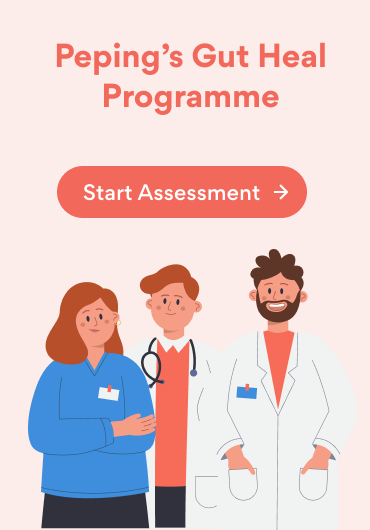Gastroesophageal reflux disease (GERD) is a functional chronic digestive disorder that occurs when symptoms like heartburn, chest pain, difficulty in swallowing and regurgitation are observed. GERD occurs when the lower esophageal sphincter becomes relaxed and the stomach acid flows back up. To manage GERD, various drugs are available that aim to reduce acid production and alleviate symptoms. However, it is important to understand the potential long-term side effects associated with these medications.
What are the Different Drugs Used for Acid Reflux/GERD/Heartburn?
1. Proton Pump Inhibitors (PPIs)
Proton pump inhibitors are commonly prescribed for GERD as they effectively reduce the production of stomach acid. Examples of PPIs include pantoprazole, omeprazole, lansoprazole, and esomeprazole. While PPIs provide significant relief from GERD symptoms, long-term use has been associated with potential side effects. The long-term acid suppression by PPIs can also lead to enteric, respiratory and urinary tract infections. The hypochlorhydria by chronic PPIs use may induce hypergastrinemia, which ultimately mediates the gastric polyps, gastric carcinoids and gastric cancer. The long-term use of PPIs can also lead to a deficiency of vitamins B12, C and minerals like magnesium, iron and calcium. Long-term use can also lead to an increased risk of bone fractures, particularly in older individuals, due to reduced calcium absorption.
2. H2 Blockers

Histamine-2 receptor blockers known as H2 blockers, such as ranitidine and famotidine, work by blocking histamine receptors in the stomach, thereby reducing acid production. They are effective in relieving GERD symptoms. However, like any medication, H2 blockers have potential side effects. Side effects include headache, dizziness, diarrhea, and, in rare cases, confusion or hallucinations, particularly in older individuals or those with kidney problems. It is essential to consult a healthcare professional if any concerning symptoms arise.
3. Antacids

Antacids are over-the-counter medications that are probably the most used drug in resolving acid reflux, acidity or other GERD symptoms. Antacids include aluminium hydroxide and calcium carbonate that work by neutralizing stomach acid, providing quick relief from heartburn symptoms. While generally safe for occasional use, long-term or excessive use of antacids can have side effects. These may include constipation or diarrhea, electrolyte imbalances (such as low magnesium or calcium levels), and kidney problems. It is important to follow the recommended dosage and consult a healthcare professional if antacids are required frequently.
4. Prokinetics

Prokinetic medications, such as metoclopramide, enhance the movement of food through the digestive system and reduce acid reflux. They may be prescribed in certain cases of GERD. However, prokinetics can have side effects. Common side effects include fatigue and restlessness. In rare cases, they may cause neurological effects such as involuntary muscle movements. The use of prokinetics requires careful monitoring and discussion with a healthcare professional.
5. Alginate-Based Medications

Alginate-based medications, such as sodium alginate, work by creating a protective barrier in the stomach, reducing acid reflux symptoms. They are generally considered safe and may be used as an alternative or complementary treatment for GERD. However, they are not as widely adopted as the other medications when it comes to treating GERD. While side effects are rare, some individuals may experience minor gastrointestinal issues such as bloating, constipation, or diarrhea. If any concerns arise, it is advisable to consult a healthcare professional.
Can you take acid reflux medicine frequently?
Frequent heartburn or GERD (occurring more than twice a week) usually responds best to a heartburn medicine such as a proton pump inhibitor taken every day as directed rather than as needed at the onset of heartburn symptoms. However, these medicines are generally prescribed for a certain duration depending on the severity. It may last for 1 week-4 weeks. These medications should not be turned into a long-term habit.
When considering the use of medications for GERD, it is important to weigh the benefits against the potential long-term side effects. Medications should be taken under the guidance of a healthcare professional, and it is essential to discuss any concerns or potential risks. In some cases, lifestyle modifications, such as dietary changes, weight management, and elevating the head of the bed, may alleviate GERD symptoms and reduce the need for long-term medication use.
The ideal resolution to GERD is by making holistic changes in life – dietary changes, exercise, stress management and probiotics if required. This helps in alleviating the long term usage of these medications and also their side effects.
Remember, individual experiences with GERD and its treatment may vary, so it’s crucial to consult a healthcare professional for personalized advice and recommendations.














